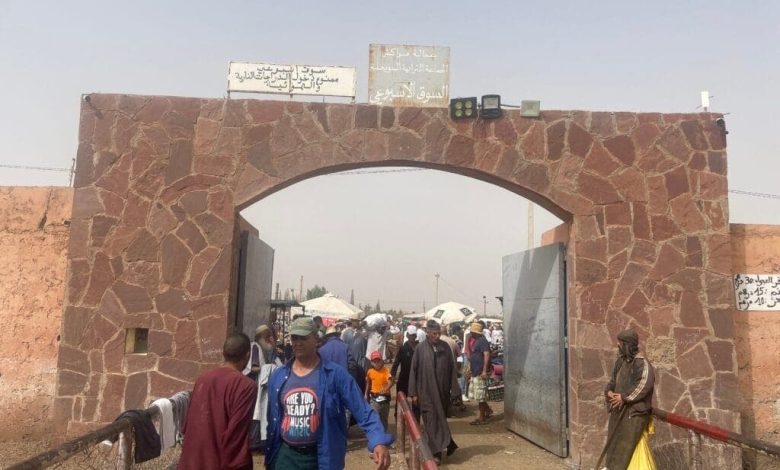Marrakech: Due to the monopoly of the weekly market, associations threaten to take legal action against the boss of the Souihla group

A. Latif Baraka: Heba Press
Four local associations sent a letter threatening to take legal action against the president of the independent group, Abdelkader Baabi.
The same associations threatened, according to the text of the correspondence, to initiate the necessary administrative and judicial procedures, in the event that “any violation is proven” in the process of failure to comply with the contract, calling on the president to “rely on the law.” course while resorting to the eye of reason and transportation, formulating any administrative decision that would lead to a pre-selection of competitors, or to discrimination or systematic exclusion of others, on the grounds of the inclusion of descriptive documents that are impossible to possess or obtain. the competent constitutional institutions and departments.
He also called on these same associations to rely on “the adoption of good governance in the implementation and application of the law, in the adoption of any administrative decision intended to develop collective wills and resources, to submit to public auction the facilities that we submit, to select the highest bids that best protect public funds.
Local associations fear, according to the text of the correspondence, that the procedure of referring the facilities of the Suwayhla weekly market to the so-called “delegated measure” will lead to favouring certain companies to the detriment of others. The bodies also expressed their concerns about the transparency of the decision-making process and called on the Council to respect the law and good governance.
The Council is expected to approve several items included in its work at its extraordinary meeting tomorrow, Thursday, but the controversial point is related to the omission of the weekly market.
According to the available information, the company that benefits from the authorization procedure is the same one that currently operates the market on the basis of a rental contract and also manages the recently built modern slaughterhouse. The agreement provides for the authorization to manage the market for a period of 12 years in exchange for a monthly sum that is approximately 18 million centimes lower than the current income that the group derives from renting the market.
Councilors and opponents of the project fear that the mandate will lead to an increase in prices imposed on merchants and therefore on consumers, due to the expected revision of the tax decision, which includes an increase in the “exchange” price.
The proposed increases in the price of “Sanak” vary between 50 and 100 percent, which means a significant increase in the costs of renting places on the market. This increase in costs will ultimately be borne by consumers who are already suffering from high prices.
Critics of the project say the approval process is subject to several questions of transparency and fairness. They question the reasons that led the group to give up an important source of revenue, how the beneficiary company was chosen, the competition for the project, or the decision in advance?
They also doubt the feasibility of this process, stressing that it will not lead to an improvement in the services provided to citizens, but will rather increase the financial burden on them.
A number of advisers and human rights organisations have called for this decision to be postponed and reconsidered, stressing that there is a need for more transparency and discussion on this vital issue that affects the interests of citizens.
They believe that there are other alternatives that the group can use to improve market management, without resorting to delegation to a private company.
After this decision was adopted at yesterday’s session, the National Observatory for Combating Corruption and Protecting Public Money decided to submit a request to the governor before the expiration of the 15-day period required for its approval, especially since this same decision undermines legitimate competition and strengthens the monopoly. This contributes to increasing the prices of coins, which will be passed on to all citizens, which will contribute to increasing the already high prices.






